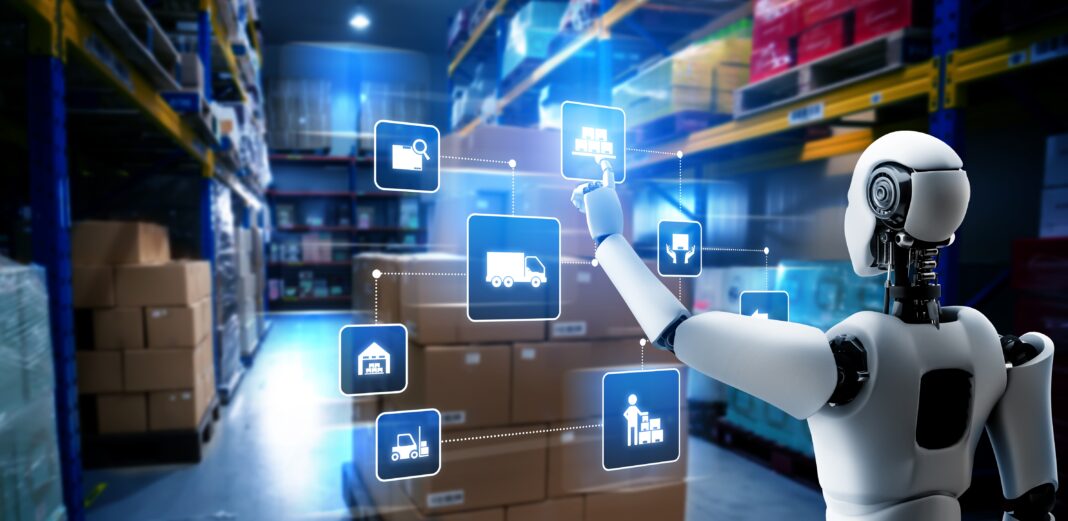Can AI Improve Supply Chain Sustainability?
Sustainability in global supply chains has become a critical business focus in recent years, and rightly so, considering the warehousing and logistics industry is a massive contributor to climate change.
Implementing eco-conscious practices in the supply chain involves mapping the end-to-end process and increasing efficiency while carefully considering potential environmental impacts. Technology is at the forefront of this transformation. Artificial intelligence, in particular, has already shown promise in minimizing several industries’ carbon footprints.
Here’s how AI can help build more sustainable supply chains and drive positive change.
1. Carbon-Neutral Transportation
Cargo ships, trucks, planes and trains transport billions of tons of goods worldwide yearly. According to MIT, freight transportation accounts for 8% of global greenhouse gas emissions and will likely be the highest carbon-emitting sector by 2050.
Automated electric trucks present a panacea by eliminating the reliance on fossil fuels to ship products across the country. The International Council on Clean Transportation estimates that battery-electric trucks can save over 63% of the carbon emissions of a comparable diesel vehicle. Switching to AI-powered drones and delivery robots for shorter deliveries can also dent the sector’s carbon footprint.
2. Enhanced Waste Management
Overproduction and waste cost supply chain companies as much as 3.6% of their annual profits. Around 4.3% of stock degrades in the supply chain before even reaching the shelf. This presents a significant environmental risk, especially when disposed of improperly. The resulting air, water and soil pollution pose potential health challenges and biodiversity decline.
AI-enabled IoT sensors provide enhanced visibility into supply chains, allowing companies to make insight-driven waste prevention and management decisions. Picture a scenario where smart sensors transmit real-time data about the quality of a perishable product while in transit. Once it hits a predetermined level, the systems alert the suppliers to prevent potential waste by rerouting it to a closer processing facility.
3. Energy-Saving Integrations
Hauling and storing goods consumes massive amounts of energy, from the dock to the warehouse to the final destinations. Cooling systems account for 44.1% of the total electricity use in a typical cold storage facility. Increased energy consumption contributes greatly to greenhouse gas emissions, especially when sourced from fossil fuels.
Recent research into deep machine learning and advanced temperature control algorithms has shown promising results. During initial tests, the model reduced energy consumption by 47.64% while maintaining the target temperature range in the cold storage environment.
4. Optimized Route Planning
Inclement weather, traffic and emergencies keep delivery vehicles on the road much longer than necessary. Prolonged wait times in transit mean a corresponding increase in greenhouse gas emissions. The environmental impact is staggering.
Advanced AI models can optimize routes for quicker, more efficient shipping. For example, AI can analyze real-time weather conditions to predict potentially dangerous patterns and generate accurate forecasts. Logistics managers can use this information to map out ideal routes and delivery schedules to meet demands sustainably.
5. Process Automation
The nature of work across the supply chain is evolving faster than ever. AI’s ability to automate time-consuming, everyday tasks will make the technology instrumental in minimizing the sustainability impact of manual errors.
Consider an item mistakenly delivered to the wrong address due to a clerical error. Rectifying the issue will involve transporting the item back to the sorting facility and sending it to the right address while the correct item ships to the original recipient. That’s a lot of carbon emissions from a simple oversight.
AI models can approximate human decision-making power to handle a wide range of decisions and minimize costly mistakes. Administrative tasks like document processing and responding to customer inquiries can also join the automation bandwagon, freeing up workers to focus on higher-level projects.
Businesses Must Adapt or Be Outpaced
Increasing focus on supply chain sustainability doesn’t just benefit the planet. It’s a strategic imperative that sets companies apart in the logistics industry. According to a recent IBM study, organizations that embed sustainability are potentially 52% more profitable than their peers.
Implementing eco-conscious practices is also fundamental to engaging tomorrow’s largest consumer base. An increasing number of millennials and Gen Zers rate environmental friendliness as a purchasing factor.
Ultimately, this means B2C organizations must join the sustainability movement or be left out of the changing market dynamic.
Can AI Improve Supply Chain Sustainability?
An ESG-focused revolution is heading to the manufacturing, warehousing and logistics industries. AI will be vital in facilitating the switch to eco-friendly solutions across the supply chain. Businesses must leverage the technology to bolster their sustainability efforts and maintain a competitive advantage.

Sustainable development and simplification of technological processes in the future is associated with the introduction of AI. Already, technical innovations in artificial intelligence, AR, IoT, quantum computing, developments in GreenTech and Deep Tech are simplifying the system for developing digital business models and helping to optimise work processes. This is the near future of most industries, including logistics.
Today, the latest ideas of artificial intelligence make it possible to accurately calculate the cost of delivery, create a wide range of different capabilities that simplify the planning of logistics processes, and facilitate the autonomous performance of many functions.